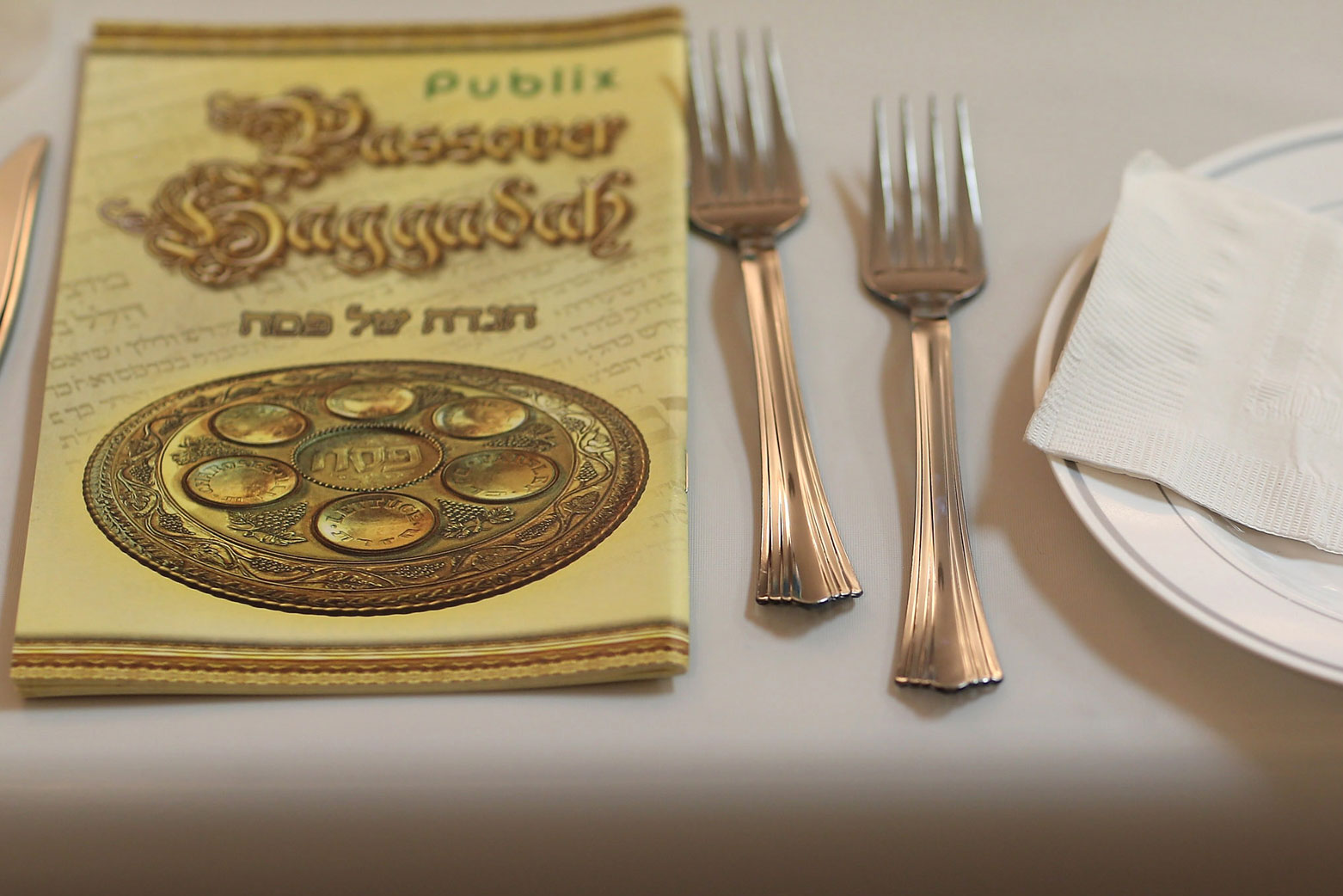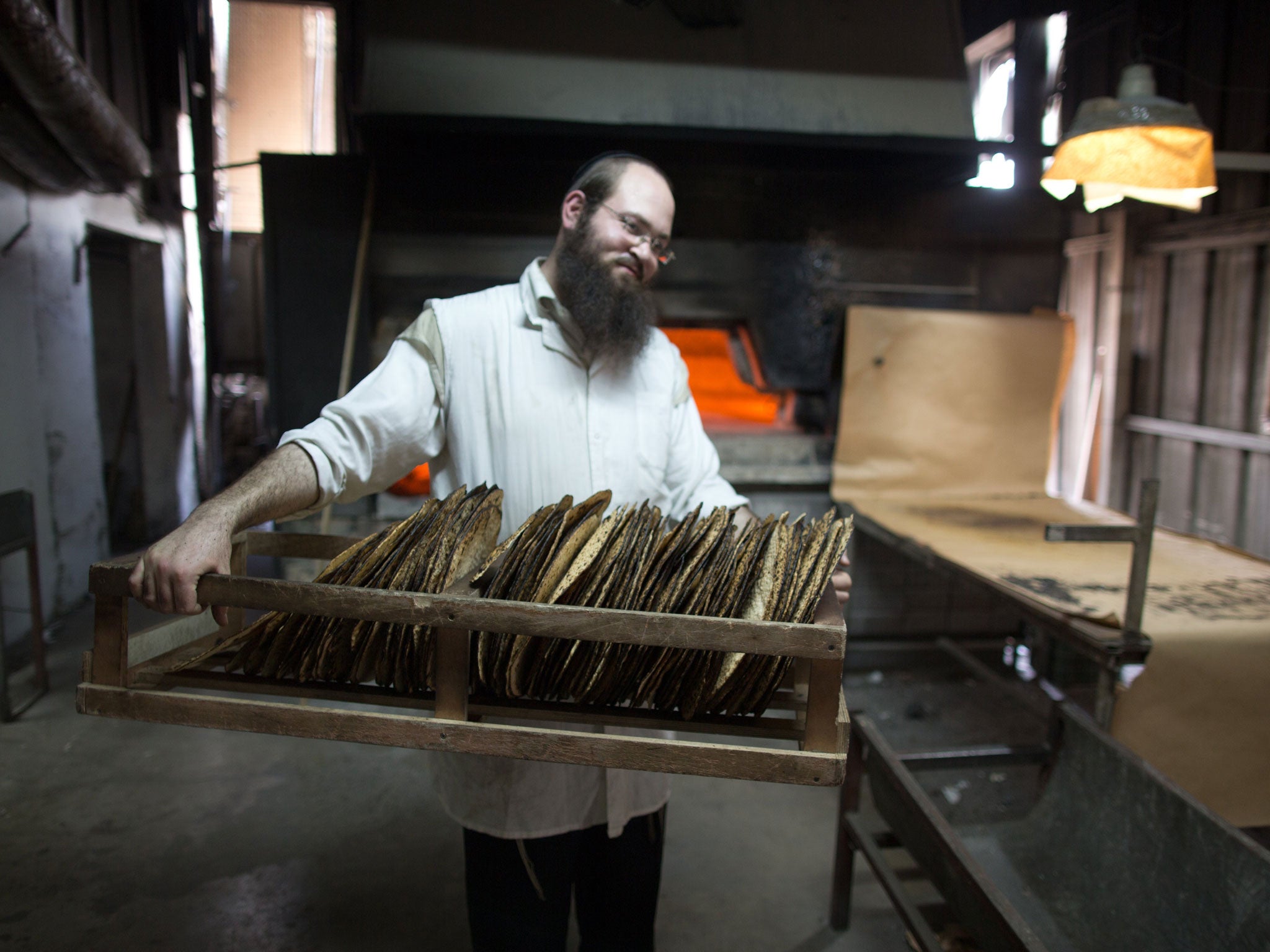Passover 2014: the Jewish festival explained
Passover is one of the most important celebrations in Judaism

Your support helps us to tell the story
From reproductive rights to climate change to Big Tech, The Independent is on the ground when the story is developing. Whether it's investigating the financials of Elon Musk's pro-Trump PAC or producing our latest documentary, 'The A Word', which shines a light on the American women fighting for reproductive rights, we know how important it is to parse out the facts from the messaging.
At such a critical moment in US history, we need reporters on the ground. Your donation allows us to keep sending journalists to speak to both sides of the story.
The Independent is trusted by Americans across the entire political spectrum. And unlike many other quality news outlets, we choose not to lock Americans out of our reporting and analysis with paywalls. We believe quality journalism should be available to everyone, paid for by those who can afford it.
Your support makes all the difference.As sundown on Monday evening marks the beginning of Passover, we answer some frequently asked questions on one of the most important festivals in the Jewish year.
What does the festival celebrate?
During Passover, Jewish people remember how Moses freed Israelites who were enslaved by the Egyptian Pharaohs over 3,000 years ago.
According to the story relayed in the Book of Exodus, Chapter 12, in the Torah, Moses called for the Pharoah to free the Israelites, and warned that if he failed to do so Egypt would be hit by terrible plagues of: blood, frogs, gnats, flies, blight of the livestock, boils, hail, locusts, darkness and the death of every first-born male in Egypt.
Why is it called Passover?
When the Pharoah refused to free the slaves and ignored the other plagues, God set about killing ever first-born male in Egypt. God warned Moses that to protect their first-born sons, the Israelites should mark their doors with lamb’s blood so God would know to ‘pass over’ their houses and spare them from the plague.

What do Jewish people eat and drink?
One of the main foods eaten over Passover is unleavened bread called Matzah. It is said that when the Pharaoh finally freed the slaves, the Israelites were made to leave so quickly that they did not have time to let their bread rise, and took flat bread instead.
It is also traditionally viewed as the bread of the poor, and is symbolically consumed to remind followers of their ancestors' hardships.
To commence a week of complex dietary restrictions, family and friends gather for the Seder meal served on a special ceremonial dish. Eaten in a symbolic, the dinner includes a lamb bone, a roasted egg, a green vegetable to dip in salt water, bitter herbs made from horseradish and a paste made of chopped apples, walnuts and wine called Charoset.
At the start of the dinner, three Matzot are laid on top of each other and the middle Matzah is broken and the largest piece is hidden. Adults then hide this piece. The children then hunt to find the bread, and the winner receives a prize.
The meal is accompanied by four small glasses of wines symbolising joy, happiness and the freedom of the Israelites. One glass is left by an open door to welcome the prophet Elijah, who Jewish people believe will return to announce the coming of the Messiah at the end of Passover.
As the evening winds on, friends and family lean on cushions – a reminder that they are no longer enslaved – and take turns to read and listen to the story of how the Israelites fled from Egypt from a book called the Haggadah, meaning narration.
How do Jewish people prepare?
As leavened goods like bread cooked with wheat, rye, barley, oats and spelt and items made from yeast such as beer are banned during the holiday, the weeks leading up to Passover are spent cleaning. Every nook and cranny is scrubbed to get rid of even the tiniest forbidden crumb that might lurk there.
What other rituals are involved?
On the first and last days of the holiday, followers are not allowed to work. The week sees a number of other feasts, including the second Seder which these year falls on Tuesday. Jewish people also generally drink a glass of wine each day after the second day of passover.
Moshiach's Feast, beginning before sunset and continuing until after nightfall, concludes the festival. The meal anticipates the arrival of the Messiah, stared on the first day of Passover when a glass of wine is left out for Elijah.
Join our commenting forum
Join thought-provoking conversations, follow other Independent readers and see their replies
Comments